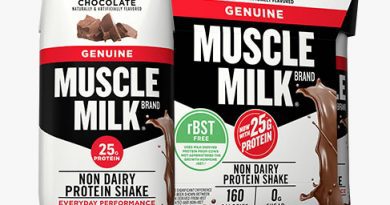Multivitamin Supplements: Nutrition Alone Doesn’t Cut It
Are you using multivitamin supplements? If not, perhaps you should…
Achieving your daily intake of every vital micronutrient through diet alone is the goal, but let’s be realistic, it rarely happens. For many of us, our food selection isn’t diverse enough to cover all the bases.
The typical American diet often falls short, and to truly fill those nutritional gaps, you need a wide variety of fruits and vegetables every single day.
If you’re not hitting those marks, you’re in the right place. It might be time to consider the strategic use of multivitamin supplements to support your health goals.
Disclaimer: This article is for informational purposes only and is not meant to treat or diagnose any condition. It is recommended that you speak with your doctor before starting any exercise program, changing your daily nutrition, or adding any supplements to your regimen.
Table of contents
Key Takeaways
- Even with a healthy diet, it’s difficult to get 100% of your essential micronutrients from food alone due to a lack of dietary variety.
- Nutrient needs change based on age, sex, and activity level, which is why you see different formulations for men, women, and seniors.
- Bright yellow urine after taking a multivitamin is a harmless effect of excess Vitamin B2 (Riboflavin) and not a sign that the supplement is ineffective.
- To ensure quality and purity, look for multivitamins with third-party certifications like NSF Certified for Sport or Informed-Sport.

Building a Solid Base
The foundation of your health is built on what you put into your body. Fueling it with junk food leads to poor long-term outcomes. A solid base starts with nutrient-dense foods rich in high-quality macronutrients, which are your proteins, carbohydrates, and fats.
In my years as a certified sports nutritionist, I emphasize a “food first” approach. The majority of your vitamins and minerals should come from your diet. Yet, data from the CDC’s National Health and Nutrition Examination Survey consistently shows that many Americans have nutrient gaps. For example, a significant portion of the population is deficient in Vitamin D and Magnesium.
This is where smart supplementation with multivitamin supplements comes in.
Pro-Tip for Athletes: Magnesium is crucial for over 300 biochemical reactions in the body, including muscle and nerve function. A deficiency, which is common in active individuals, can lead to muscle cramps and fatigue. This is a perfect example of a gap a good multivitamin can help fill.
Your specific needs also change with your sex and age. That’s why men’s and women’s multivitamin supplements are formulated differently. For instance, women’s formulas often contain more iron to account for loss during menstruation, while men’s may have more lycopene for prostate health. Likewise, if you compare regular multivitamins to senior formulas, you’ll notice higher levels of Vitamin D and B12, as our ability to absorb these nutrients decreases with age.
Researchers Are Promoting the Use of Multivitamin Supplements

Have you ever been told that bright yellow urine means you’re just “flushing your money down the toilet?” This is one of the biggest myths in nutrition. That color change is caused by an excess of riboflavin, also known as vitamin B2. It’s a water-soluble vitamin, meaning your body uses what it needs and excretes the rest. It’s a harmless process and is not a sign of a worthless product.
While some debates on the topic continue, strong research supports their use. A landmark 2012 study from Harvard involving 14,600 male physicians showed that daily multivitamin use was associated with an 8% lower risk of total cancer over 11 years compared to a placebo. More recent analyses, like a 2022 review from the U.S. Preventive Services Task Force, found insufficient evidence to recommend for or against multivitamins for preventing cardiovascular disease or cancer in most healthy adults, but they also highlighted the need for more research, especially in diverse populations.
For active individuals, the demand for essential vitamins and minerals is higher. Multivitamin supplements support everything from heart and brain function to muscle contraction and recovery. They act as a nutritional insurance policy.

Related Article: Can Your Multivitamin Do THAT? Patented Supershroom
The key is choosing a high-quality product. Instead of just picking any bottle off the shelf, I recommend you purchase multivitamin supplements from a brand that invests in third-party testing. Look for certifications on the label like:
- NSF Certified for Sport: This ensures the product contains what the label says, is free of contaminants, and does not contain any substances banned by major athletic organizations.
- Informed-Sport: This certification program tests every single batch of a product for banned substances before it’s released to the market.
Choosing a certified product gives you peace of mind that you’re using a safe and accurately labeled supplement to support your active lifestyle.
Unsure what supplements you need to reach your goals? Check out our FREE supplement recommendations tool!
FAQs About Multivitamin Supplements
When is the best time to take multivitamin supplements?
Consistency is more important than timing. However, taking your multivitamin with a meal can enhance the absorption of fat-soluble vitamins (A, D, E, and K) and may reduce the chance of an upset stomach.
Are gummy multivitamin supplements as effective as pills?
Gummy vitamins can be a good alternative for those who have trouble swallowing pills. However, they often contain added sugars and can be less stable, potentially having lower levels of certain nutrients than what’s listed on the label by the time they are consumed. A 2023 analysis of 50 popular gummy vitamin brands found that 80% had nutrient levels that differed from their labels. Always check for third-party testing to verify potency.
Can I take too much of a certain vitamin?
Yes, this is known as hypervitaminosis. It is most common with fat-soluble vitamins (A, D, E, K) because they are stored in the body’s fatty tissues. Water-soluble vitamins (B vitamins and C) are less likely to cause issues, as excess amounts are typically flushed out. It’s crucial not to exceed the recommended daily allowance from all sources, including food and other supplements, unless advised by a healthcare professional.


*Disclosure: This article may contain affiliate links or ads, which means we earn a small commission at no extra cost to you if you make a purchase through these links. These commissions help support the operation and maintenance of our website, allowing us to continue producing free valuable content. Your support is genuinely appreciated, whether you choose to use our links or not. Thank you for being a part of our community and enjoying our content.
PLEASE CONSIDER SHARING THIS ON YOUR SOCIAL MEDIA TO HELP OTHERS LEARN MORE ABOUT THIS TOPIC.





